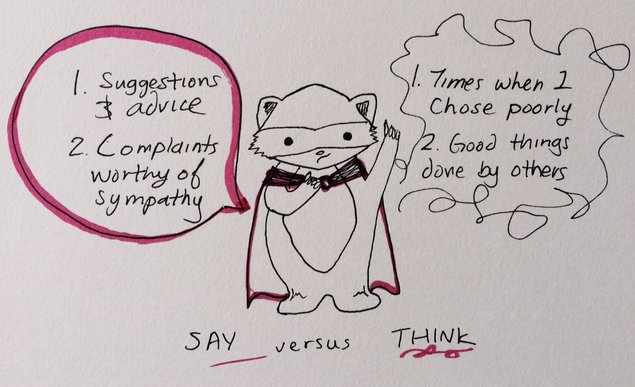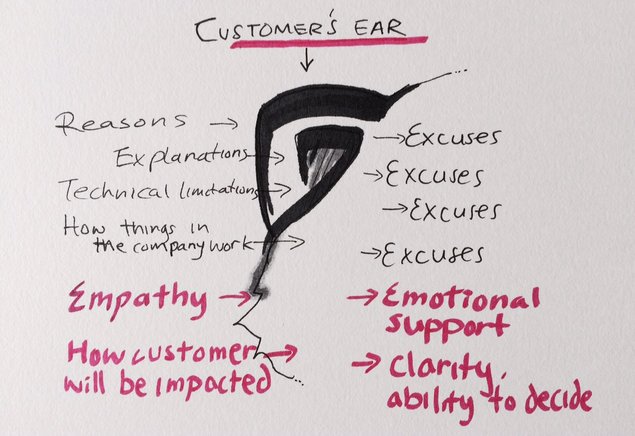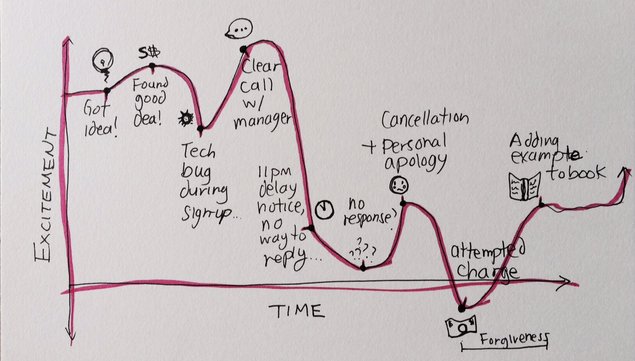An introvert's guide to creating things people want
Understanding people and how they want is challenging. We have more information than insight and less time than ideas. Let's tackle those!
Ended
Have you had a bad customer support experience lately? Or, perhaps a frustrating time placing an order or getting help online?
I did -- and, I complained about it for weeks!
We share great products and valuable services because it feels good when others take our suggestions.
We share poor customer support and user experiences because it feels good when others commiserate with us... when we do a bit of "justice" the company at fault.
Specifically, about 65% share bad customer service experiences (while only 25% say positive things)! This makes ensuring decent support more worthwhile than focusing on surprising people. (CEB research)

So here I am, sharing my bad customer service experience... along with the quick fixes I recommended!
1. Explanations are excuses. Each time I reported an issue, XYZ replied in lengthy, cold, "professional" language WHY things weren't working. They didn't apologise for the trouble I was facing, or commit to fixing it for future users.
>> Empathise first. Acknowledge what the customer said they're feeling -- they want to be heard... whether or not you can solve their problem. Then, follow with a brief and clear note on what's next or alternative actions.

2. Expectations clash. When I first wanted to buy, I expected to have everything settled in 3 days to a week. After scheduling, I found out -- though a "delay notice" -- that it often takes several months to finish!
>> Customers don't know what they don't know -- anticipate their expectations based on their prior experiences, and let them know what to expect. Perhaps, put a positive spin on it: ie "This new and ground-breaking technology is compatible with select locations and involves a special process that may take up to a few months. Indicate your interest, and we'll explore your specific case!"

3. Alerts trigger emotions. XYZ sent a "delay notice" at 11pm... from a no-reply email and a no-reply/no-call phone number -- no suggested action or timeframe for updates. They end the msg with "80% of cases are resolved in 6 weeks."
>> Send alerts during local business hours, give customers a way to ask questions, and address their biggest worries (eg. if they'll be charged, and when they'll get another update).
4. Take responsibility for policy. XYZ wanted to charge me for early cancellation, as per their policy, when they were the ones who cancelled the appointment.
>> Notice cases where the customer would feel its the company's fault and either negate the issue or take responsibility. If the policy angers people, then change it (reframe it, or delete it)!
Don't worry about dazzle and delight -- instead ask and measure, "how easy am I making it for the customer"?
*As these are quick fixes, they don't apply in all cases -- but in most, they would help.
Let me know what you think!
Angela
Angelaognev@gmail.com
Upcoming Events